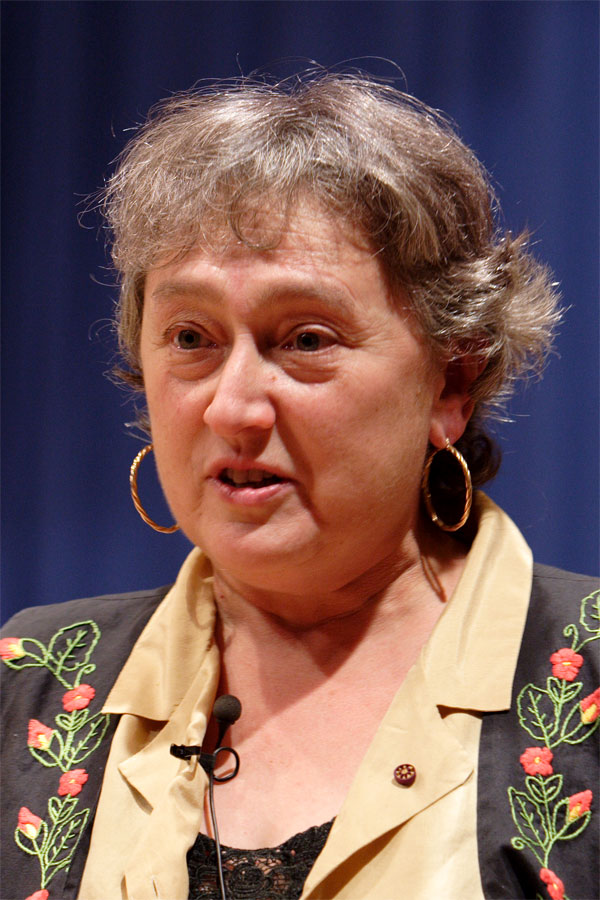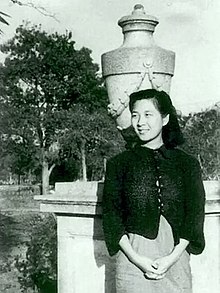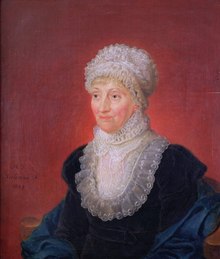Releases: ethereum/trinity
Trinity v0.1.0-alpha.36 "Lynn Margulis"
This Trinity release goes out under the name "Lynn Margulis".
It adds new features such as writing metrics to an InfluxDB database. It also adds support for the admin_peers RPC endpoint, the eth/65 protocol, a new sync mode header (comparable to light sync but on the ETH not LES network) as well as several beam sync improvements. More below the break.
With each release we like to highlight one of the amazing women from history and present day. Meet Lynn Margulis:
Lynn Margulis (born Lynn Petra Alexander;[2][3] March 5, 1938 – November 22, 2011)[4] was an American evolutionary theorist, biologist, science author, educator, and science popularizer, and was the primary modern proponent for the significance of symbiosis in evolution. Historian Jan Sapp has said that "Lynn Margulis's name is as synonymous with symbiosis as Charles Darwin's is with evolution."[5] In particular, Margulis transformed and fundamentally framed current understanding of the evolution of cells with nuclei – an event Ernst Mayr called "perhaps the most important and dramatic event in the history of life"
For the full list of changes, see the release notes.
See the quickstart guide here for information on how to install and run the Trinity client.
Trinity v0.1.0-alpha.35 "Xia Peisu"
This Trinity release goes out under the name "Xia Peisu". It adds new features such as Clique/Görli support, Beam sync pivoting, eth/64 as well as many other improvements and bugfixes. More below the break.
With each release we like to highlight one of the amazing women from history and present day. Meet Xia Peisu:
Xia Peisu or Pei-su Hsia (Chinese: 夏培肃; 28 July 1923 – 27 August 2014) was a Chinese computer scientist and educator known for her pioneering research in computer science and technology.[1][2][3] The leading developer of Model 107, China's first indigenously designed general-purpose electronic computer, she has been called the "Mother of Computer Science in China". She and her husband Yang Liming were both elected academicians of the Chinese Academy of Sciences in 1991. In 2010, she was honoured with the inaugural Lifetime Achievement Award from the China Computer Federation.
For the full list of changes, see the release notes.
See the quickstart guide here for information on how to install and run the Trinity client.
Trinity v0.1.0-alpha.34 "Caroline Herschel"
This Trinity release goes out under the name "Caroline Herschel". It adds support for the upcoming Muir Glacier fork as well as a variety of features, fixes and performance improvements. More below the break.
With each release we like to highlight one of the amazing women from history and present day. Meet Caroline Herschel:
Caroline Lucretia Herschel (/ˈhɜːrʃəl, ˈhɛər-/;[1] 16 March 1750 – 9 January 1848) was a German astronomer, whose most significant contributions to astronomy were the discoveries of several comets, including the periodic comet 35P/Herschel–Rigollet, which bears her name. She was the first woman to receive a salary as a scientist.
For the full list of changes, see the release notes.
See the quickstart guide here for information on how to install and run the Trinity client.
Trinity v0.1.0-alpha.33 "Frances Spence"
This Trinity release goes out under the name "Frances Spence". It adds a critical Istanbul fork fix, plus a variety of other upgrades and bugfixes. More below the break.
With each release we like to highlight one of the amazing women from history and present day. Meet Frances Spence:
Frances V. Spence (née Bilas; March 2, 1922 – July 18, 2012[1]) was one of the original programmers for the ENIAC (the first electronic digital computer). She is considered one of the first computer programmers in history.
For the full list of changes, see the release notes.
See the quickstart guide here for information on how to install and run the Trinity client.
Trinity v0.1.0-alpha.31 "Marlyn Meltzer"
This Trinity release goes out under the name "Marlyn Meltzer". It adds a critical Istanbul fork fix, plus a variety of other upgrades and bugfixes. More below the break.
With each release we like to highlight one of the amazing women from history and present day. Meet Marlyn Meltzer:
Marlyn Wescoff Meltzer (1922 – December 4, 2008) was one of the six original programmers of ENIAC, the first general-purpose electronic digital computer. In 1997 she was inducted into the Women in Technology International Hall of Fame, along with the other original ENIAC programmers. Her work on ENIAC and at the University of Pennsylvania was later recognized in the 2010 documentary film Top Secret Rosies: The Female "Computers" of WWII.
For the full list of changes, see the release notes.
See the quickstart guide here for information on how to install and run the Trinity client.
Trinity v0.1.0-alpha.30, Elinor Ostrom
This Trinity release goes out under the name "Elinor Ostrom". It upgrades py-evm to a newer version which targets the planned the Istanbul mainnet block. More below the break.
With each release we like to highlight one of the amazing women from history and present day. Meet Elinor Ostrom. She won the Nobel Prize in Economics in part for her work on Common Pool Resource institutions, wherein she described self-organized governance systems which can successfully manage common resources without government regulation or privatization.
For the full list of changes, see the release notes.
See the quickstart guide here for information on how to install and run the Trinity client.
Trinity v0.1.0-alpha.29 "Beatrice Worsley"
This Trinity release goes out under the name "Beatrice Worsley". It adds the Istanbul fork block, and fixes various bugs. More below the break.
With each release we like to highlight one of the amazing women from history and present day. Meet Beatrice Worsley:
The first female computer scientist in Canada. She received her Ph.D. degree from the University of Cambridge with Alan Turing and Douglas Hartree as advisers, the first Ph.D granted in what would today be known as computer science. She wrote the first program to run on EDSAC, co-wrote the first compiler for Toronto's Ferranti Mark 1, wrote numerous papers in computer science, and taught computers and engineering at Queen's University and the University of Toronto for over 20 years
For the full list of changes, see the release notes.
See the quickstart guide here for information on how to install and run the Trinity client.
Trinity v0.1.0-alpha.28 "Hedy Lamarr"
This Trinity release goes out under the name "Hedy Lamarr".
Beam Sync has now reached the status: Working Prototype 🎉 (aka~ it usually works on my computer ™️ ). The impact is that now it now takes under an hour to go from an empty database to executing current mainnet blocks! Read below for more.
With each release we like to highlight one of the amazing women from history and present day. Meet Hedy Lamarr:
At the beginning of World War II, she and composer George Antheil developed a radio guidance system for Allied torpedoes, intended to use frequency-hopping spread spectrum technology to defeat the threat of jamming by the Axis powers. Although the US Navy did not adopt the technology until the 1960s, various spread-spectrum techniques are incorporated into Bluetooth technology and are similar to methods used in legacy versions of Wi-Fi. This work led to their induction into the National Inventors Hall of Fame in 2014.
Beam Sync will get a proper writeup soon. The gist is that Trinity starts as a stateless client, and slowly transitions to a full client over time.
Beam Sync is only one feature in a significant set of changes. Of special note are:
- py-evm upgrade: including performance improvements
- json-rpc server handles requests even if local state is missing
- peer discovery improvements
For the full list of changes, see the release notes.
We welcome folks to try out Beam Sync (it's the default sync now) and let us know your experience. For the fastest and easiest experience, try out: trinity --beam-from-checkpoint="eth://block/byetherscan/latest". There will be a lot of log spam at the console. Consider it a reminder that trinity is still in alpha. 😅
Expect another small release soon, with final Istanbul support included.
See the quickstart guide here for information on how to install and run the Trinity client.
Trinity v0.1.0-alpha.26 "Williamina Fleming"
This Trinity release goes out under the name "Williamina Fleming".
Look for improvements to command line usage, logging, plugin dogfooding, and a less-crashy (but still experimental) new sync approach.
With each release we like to highlight one of the amazing women from history and present day. Meet Williamina Fleming, a:
Scottish astronomer. During her career, she helped develop a common designation system for stars and cataloged thousands of stars and other astronomical phenomena. Among several career achievements that advanced astronomy, Fleming is noted for her discovery of the Horsehead Nebula in 1888.
Of special note is trinity --sync-mode=beam. Beam Sync now crashes so much less that it's reasonable for adventurous folks to start experimenting with it. Beam Sync downloads just enough state to run the latest blocks, and is currently the best option for executing the latest mainnet blocks with Trinity. Note that the current Beam Sync implementation does eventually fall behind and stop syncing, but there are many options for performance improvement. In the current implementation, Beam Sync can run for a few hundred blocks if you sync against a peer on localhost.
For the full list of changes, see the release notes.
See the quickstart guide here for information on how to install and run the Trinity client.
Trinity v0.1.0-alpha.25
Just a quick patch release to handle an eth-keys version dependency conflict (by upgrading py-evm).








